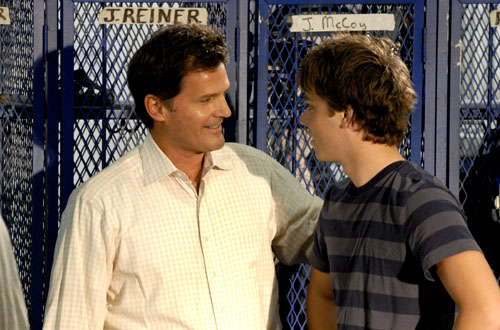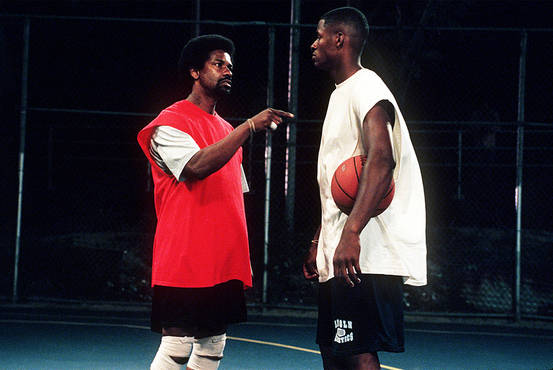
Did you get to check out The Atlantic piece DZ quoted in last week’s weekender, “Parents Ruin Sports for Their Kids by Obsessing About Winning”? As soon as I read it, I knew taking a closer look was inevitable this week in Mbird sports!
DZ was right, the title is anything but subtle. In the piece, Lisa Endlich Heffernan admits to her own proneness to turning athletics into an avenue for performancism, not just for her child but for herself:
Every sports cliche you can think of, I have uttered: teamwork, respect for the coach, being part of something bigger than yourself, and practice making perfect. But as I look back over a decade and a half watching my sons play sports, I have to confess the dirty truth: I wanted to win. I worked hard, I spent hours in preparation and I wanted to win. I had organized snacks and brought drinks. I scrubbed uniforms and cleats.I drove for miles, arrived an hour early, stood in freezing temperatures, forsaken anything else I might have done with my day. I did not want to return home without a win.
The aching desire to win can be seen on the sidelines of competitions even among the youngest participants.Parents pace the sidelines, twitching at every kick or pitch or shot of the ball, shouting exhortations at their children and the team. I have watched parents cover their eyes, unable to watch, such is the stress they feel. In many cases it becomes clear that it is the parents who want to win. Parents want the dopamine thrill of winning, the heady rush that adults feel with success. Winning, even for spectators (and the research was done only on males), gives a testosterone surge, and losing actually lowers hormone levels. As parents we so identify with our kids that their success quickly becomes our own. As spectators, parents seek confirmation even at the earliest stages that great athletic possibilities exist for their child: a better team, starting spot, varsity experience or college scholarship.

The “dopamine thrill of winning” is oh so relatable. The notion of living vicariously through your children’s athletic endeavors is simply yet another form of identity-upkeep or revitalization. The winning obsession also transforms athletics from a safe place in which creativity and self-sacrifice are fostered into an anxiety-ridden judgement seat. Haffernan again:
Soccer has kept my family close. Long car trips, weekends away, and a subject of shared interest that does not involve me mentioning the words “homework,” “study,” or “college” has drawn us together. But it is all too easy, after a miserable, long drive, bumper to bumper down the New Jersey and then Pennsylvania turnpikes in foul winter weather, to forget why I have my kids play sports and just think, They have got to win this game. It starts so innocently, asking my child, “How is the team training? How good are these teams you are up against this weekend? Have you played them before and did you win? Do you think you guys can win this weekend?” No fake casual tone can hide the message: I have driven across three states in wretched conditions and am now going to spend a weekend in a noisy hotel looking out over a highway or perhaps the garbage dumpsters, so you better make this worth my while. No kid needs this pressure. Their coaches want to win, and their teammates want to win. Knowing that they could let down their parents is counterproductive.
Judgement and the law of winning truly extinguish any possibility of beauty, vulnerability, and creativity. Pressure sets in, and it all becomes counterproductive, as with any other graceless experience. With creativity comes failure, something inconceivable in the world of performancism. Heffernan explores the fruit that comes from failing:
By focusing too heavily on winning not only do we parents fail to focus on what is important, but far worse, we refute what is important. We lose sight of sports as a vehicle for learning and, instead, convert it into a means for parents to live out their own athletic dreams or take a gamble on the unlikely event that sports will pave a road into college. I would argue that athletic competitions offer one of the very best venues for learning some of life’s most important lessons. But these lessons don’t require victories, and in fact many, like some of the following, are best taught in defeat…
I’ll leave you with a bomb from Anne Lamott‘s incredible book Bird by Bird, on the stifling nature of perfectionism as it relates to the practice of writing, which is synonymous with athletics:
I think perfectionism is based on the obsessive belief that if you run carefully enough, hitting each stepping-stone just right, you won’t have to die. The truth is that your will die anyways and that a lot of people who aren’t even looking at their feet are young to do a whole lot better than you, and have a lot more fun while they’re doing it.
Besides, perfectionism will ruin your writing, blocking inventiveness and playfulness and life force (these are words we are allowed to use in California). Perfectionism means that you try desperately not to leave so much mess to clean up. But clutter and mess show us that life is being lived. Clutter is wonderfully fertile ground–you can still discover new treasures under all those piles, clean things up, edit things out, fix things, get a grip. Tidiness suggests that something is as good as it’s going to get. Tidiness makes me think of held breath, of suspended animation, while writing needs to breathe and move.

COMMENTS
Leave a Reply












